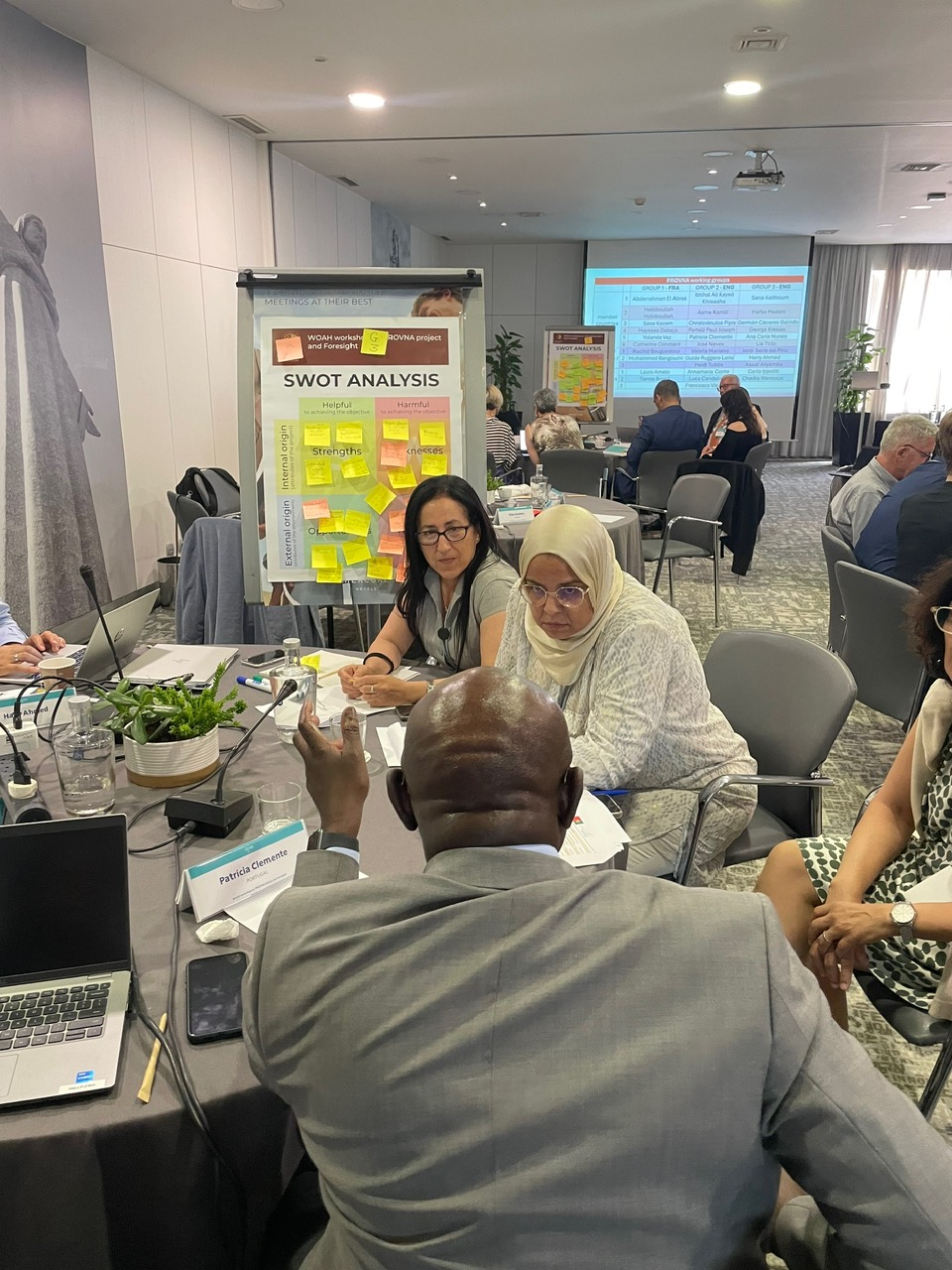
In the framework of the Mediterranean Animal Health Network (REMESA), WOAH entrusted the Istituto Zooprofilattico Sperimentale dell’Abruzzo e del Molise (IZS Teramo), Italy, as WOAH Reference Center for several domains (e.g. as Collaborating Centre: epidemiology, modelling and surveillance; as Reference Laboratory: e.g., West Nile, Bluetongue, Brucellosis, Contagious Bovine Pleuropneumonia) to implement the Defining Ecoregions and Prototyping an EO-based Vector-borne Disease Surveillance System for North Africa (PROVNA) project in collaboration with the University of Tennessee, in the United States.
The overall objective of the project is to support the local competent authorities in North Africa (Algeria, Egypt, Libya, Mauritania, Morocco and Tunisia), for the identification of specific areas on which to carry out entomological/serological surveillance for vector-borne diseases (VBDs).
Specific objectives are:
The disease selected for the first application is Rift Valley Fever (RVF) for which periodical updates were provided by IZS Teramo colleagues during the meetings of the Joint Permanent Committee (JPC) of REMESA. The PROVNA project started in April 2022 and the so-called “phase 1”, ended in June 2024.
In view of the conclusion of the “phase 1” of the project, while working on the project proposal for a “phase 2” and planning the in-person workshop, the WOAH regional office for north Africa, in collaboration with the PROVNA team, hosted several online meetings with the 6 North African Members (scheduled between April and June 2024)
Two preliminary meetings
One ad-hoc meeting for each country (3h), including: ecoregion data validation and Q&A session (between May and June 2024).
The 3 main objectives of the workshop were:
A half-day session was dedicated to each of the main objectives.
Foresight is a toolkit of methodologies for imagining alternative futures to:
Decision-making frameworks such as risk assessment and analysis, epidemiological intelligence, early warning systems monitoring and surveillance are helpful in anticipating and responding to incidents in the animal health domain. Tools like forecasting, disease modelling and simulation exercises assist in the prevention of, preparedness for and response to foreseen incidents in the present and over the subsequent months or years. With foresight methods, users gain a wider and longer-term perspective, thus enhancing their ability to adapt to rapid change and uncertainty.
Building on the experience of the 100th-anniversary participatory foresight project and awaiting the outcomes of the review of WOAH’s Basic Texts at the General Session Forum, entitled “Is WOAH Ready for the Future?”, it has been decided to include a Session on Foresight in the face-to-face workshop on the PROVNA project (back-to-back with 28th JPC REMESA) to blend PROVNA data and Foresight scenarios, with the aim of discussing what will livestock farming in the REMESA region look like and what sort of animal health surveillance will be required for Transboundary Animal Diseases (TADs) in 2035.
From left to right: Dr Rachid Bouguedour, WOAH Sub-Regional Representation for North Africa, Dr Mohammed Bengoumi, FAO and Dr Susana Pombo, CVO and WOAH Delegate of Portugal, during the opening session of the workshop. Dr Pombo is also the new President of the WOAH World Assembly of Delegates (elected in May 2024)
The training was held in Lisbon, Portugal, from 2 to 3 July 2024 and was attended by 35 participants. Besides WOAH regional (Tunis) and head office staff (Paris), contributions were made by several international experts of the PROVNA team (in order of affiliation): Laura Amato, Luca Candeloro, Annamaria Conte and Carla Ippoliti (IZS Teramo, Italy), Jordi Serra del Pino (Center for Post normal Policy & Future Studies, Spain), as well as Assaf Anyamba and Heidi Tubbs (University of Tennessee, USA).
FAO and STOR-REMESA were also represented.
An interactive approach was adopted for the workshop with plenty of group work and plenary discussion involving the active involvement of participants. Below is the workshop in pictures.




